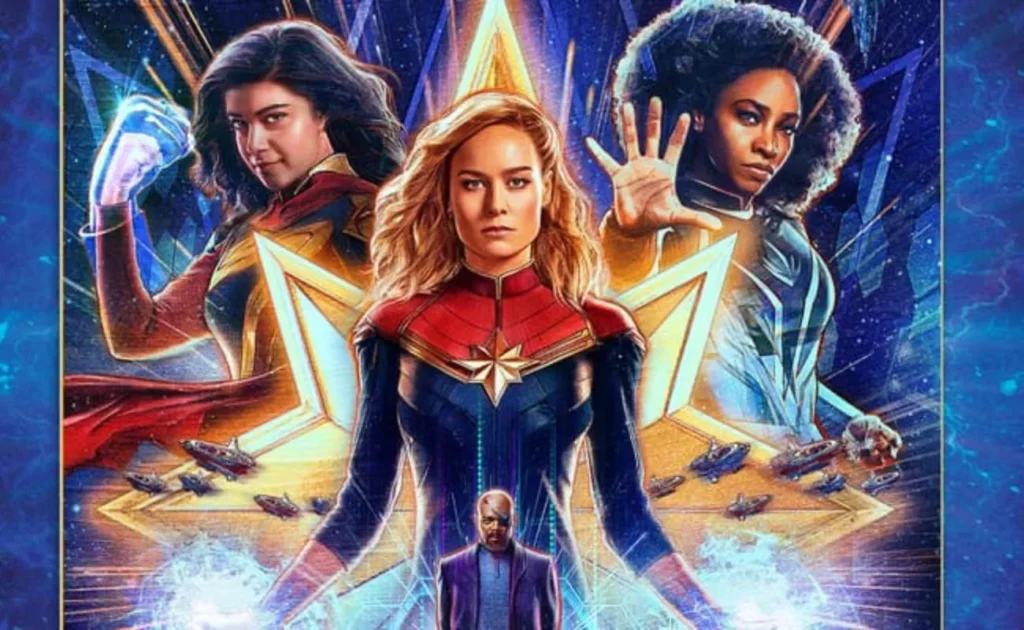The Marvel Cinematic Universe (MCU) has long been synonymous with box office success, with its films consistently drawing large audiences worldwide. However, the recent release, “The Marvels,” marks a significant deviation from this trend, concluding its box office run as the lowest-grossing MCU movie in history. This development is not only surprising given Marvel’s track record but also indicative of shifting dynamics in the superhero film genre and audience preferences.

“The Marvels,” which starred Brie Larson as Captain Marvel, Teyonah Parris as Monica Rambeau, and Iman Vellani as Ms. Marvel, had a disappointing performance at the box office. The film, despite remaining in theaters through the holiday season, ended its run with a global tally of approximately $197 million, falling short of its estimated $220 million budget. The movie’s domestic earnings were particularly striking, failing to cross the $100 million mark, a first for any MCU film. In contrast, even other less-embraced MCU entries like “Ant-Man and the Wasp: Quantumania” managed to gross nearly half a billion dollars globally despite weaker reviews.
Several factors contributed to the underwhelming performance of “The Marvels.” Contrary to some initial speculations, the film’s poor showing was not primarily due to superhero fatigue, as demonstrated by the success of other recent superhero films like “Guardians of the Galaxy Vol. 3,” which earned almost $850 million. Instead, a combination of factors played a role, including declining trust in the Marvel brand, which has been considered an automatic draw for audiences in the past. This trust issue was compounded by the less-than-stellar reception of recent Marvel movies, with “The Marvels” being one of the few MCU films in the past two years to score below 65% fresh on Rotten Tomatoes.
Another critical aspect was the reliance on prior knowledge of Marvel Disney+ shows. Two of the main characters, Ms. Marvel and Monica Rambeau, were introduced in Disney+ series, limiting their recognition among broader audiences who may not subscribe to the streaming service. Additionally, the actors’ inability to promote the film due to a strike further impacted its visibility and appeal.
The performance of “The Marvels” also reflects broader challenges faced by the MCU in the post-pandemic era. The pandemic and the increasing shift towards streaming platforms complicated the release and reception of MCU films. Movies like “Black Widow” and “Eternals” saw mixed success with hybrid or traditional theatrical releases, and even successful titles like “Doctor Strange in the Multiverse of Madness” earned less than expected due to the absence of key markets like China and Russia.
This trend suggests that the mere association with the MCU is no longer a guarantee of box office success. Upcoming projects will need to offer unique and compelling narratives to attract audiences, as seen with the anticipation for more source-faithful adaptations of “X-Men” and “Fantastic Four”. Marvel Studios’ strategy seems to reflect this realization, with a reduced slate of releases planned for 2024 and a focus on rethinking and reshaping future projects to reignite audience interest.
In summary, “The Marvels” serves as a case study in the evolving landscape of superhero cinema, highlighting the need for innovation and quality storytelling in drawing audiences to theaters. The MCU’s future success may well depend on its ability to adapt to these changing audience expectations and market dynamics.

